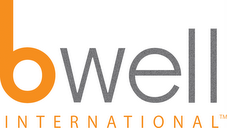An August 12 New York Times editorial highlights the imperfections of the American healthcare system. It is becoming clear that the
The editorial discusses insurance coverage and says that 45 million Americans simply do not have health insurance. This is a problem. Because of the high cost of care people without health insurance are unable to receive routine checkups and are therefore unable to be screened for diseases that could be treated if caught early. Because of this, many Americans are forced to wait until they are in the late stages of a disease (cancer, for example) before they go for treatment, because they can’t afford it otherwise. The problem is that the treatment for late-stage cancer is much more expensive than preventative care, or treatment for the disease in the early stages. As a result, the disease ends up costing the patient, and the system, much more than it should. This is part of the reason why healthcare in this country is so expensive and why so many millions of American’s can’t afford healthcare coverage.
Policy Change
The healthcare and insurance system in
In the wake of Michael Moore’s “Sicko,” the term “universal healthcare” instantly excites people and Huckabee almost seems radical in saying that we do not need a government-run universal healthcare program. But, in reality, Huckabee might have the right idea. As discussed above, and in previous posts, preventative care and a system that values health care, not just sick care, would greatly reduce cost and force Americans to become more proactive about their health.
While no one would disagree that every American needs to have access to affordable healthcare, the argument becomes whether or not the healthcare system should remain private, or if it should become public, and run by the government. And honestly, do we really want the government running our healthcare system anyway?
Record Keeping Technology
The same editorial addresses the issue of the way medical records are kept in the
